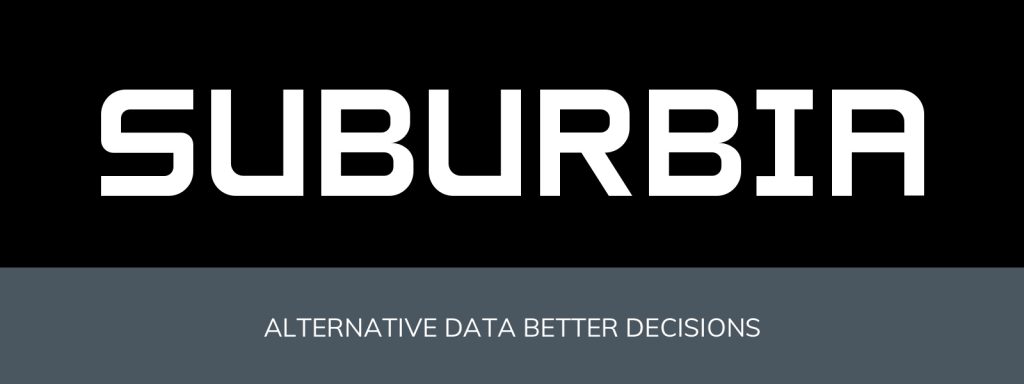Alternative data for everyone: that’s Suburbia’s core belief. The Amsterdam-based company partners with start-ups to enrich their data and turn it into valuable insights. From exploring commodity demand to tracking clothing sales, these insights can be used by start-ups to better engage their customers, or by corporations to make better business decisions faster.
“It’s fast, clean data that’s easily accessible, so you don’t have to be an expert to use it,” says Hamza Khan, the outfit’s founder. Additionally, their services are significantly more economical than traditional offerings.
“If you look at history,” Khan begins, “more data from more sources for more people has always led to a better world,” he says, citing examples from the invention of Gutenberg’s printing press to the modern internet. “So we believe in a system anyone should be able to access and use without high cost barriers to entry, arcane software requirements or extensive training - just good insights from accurate data, presented clearly”
Keeping track of it all
To get an idea of how Suburbia works, Khan gives the example of shipping. Commercial ships across the world transmit their location hourly, generating a huge dataset that’s difficult to process. Suburbia turns this data into a time series: this many ships entered a certain port today, yesterday, and every day in the last year. This can be drawn on a line chart, similar to share prices or the weather. From this example, we could see that there’s a peak in ships entering the port of Rotterdam around November 15th, as retailers gear up for the holiday season.
Analysing this peak, a warehouse owner could offer deals on storage space during mid-November, or those looking to finance inventories could offer their services around this time of increased port traffic.
What’s more is that these opportunities aren’t solely for corporate users, but also for the typically smaller companies who sell their data to Suburbia. “If a small company is tracking ships, we can put them in front of some of the world’s largest shipping companies,” says Khan, emphasising how Suburbia helps connect start-ups to new business.
What is alternative data?
Suburbia aggregates data from a number of smaller companies to give buyers a more comprehensive picture of a given market. This data can come from satellites, wearables, or any number of sources powered by our connected world.
However, alternative data is “also seeing old data in a new way.” For example, a real estate investor could glean market insights on how many people are moving from looking at cable subscription cancellations, taking this otherwise mundane telecom data and turning it into actionable material.
“What we think of now as alternative data will just be normal data ten years from now,” Khans says, adding, “I’d rather people not get hung up on the term, but just think of the possibilities of using interesting data from new sources or old data in interesting applications.”
The key for this new world of data is diversity. Historically, says Khan, centralised bodies like governments, universities, or consulting firms collected data and carried a certain authority when it came to the reliability of their information. “Today, data is being generated everywhere, not pulled on request like it used to be.” To tackle this challenge, Suburbia collects and checks data from as many sources as possible to make sure critical information isn’t being lost or overlooked.
What is reliable data?
With diverse streams of data being pushed around the globe, companies seeking to gain insights from it are understandably skeptical when it comes to its reliability and trustworthiness.
“Reliable data is data you would feel confident using for an important decision” says Khan. To get that confidence, Suburbia makes sure data comes from reliable sources, its measurement is accurate, and it’s consistent.
Investors and corporations are wary of using new data companies because many do not survive, with this potentially having negative impact on their bottom lines. Suburbia reassures companies because they aggregate data from multiple sources, so if one data supplier goes under, there’s still a rich pool of compensating data to pull from.
Worldwide reach
Currently, Suburbia is focused on retail and commodity data in northwest Europe and the US, but has global ambitions to scale.
“We invite any company with interesting data to contact us to see if we can enrich it for bigger uses” says Khan, “or if you’re a corporation facing a challenge that could be solved with better data and machine learning, we’d love to help”
This ambition is also geographical - “Like clean water, there’s no reason for clean data to be confined to certain countries. We see it as a universal right, so we can all move towards better decisions for a better world… that’s alternative data for everyone.”


